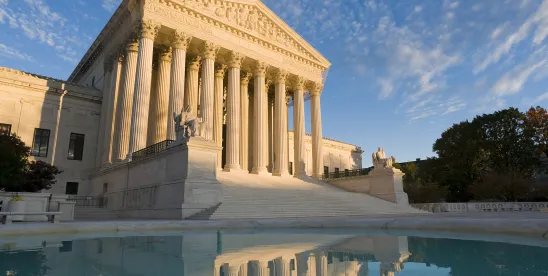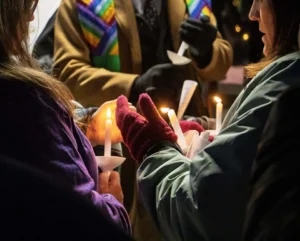Supreme Court Unanimously Sides with Catholic Charity Group in Tax Exemption Bid

Supreme Court unanimously sides with Catholic charity group in tax exemption bid
Introduction
The recent ruling by the Supreme Court, which unanimously favored a Catholic charity group seeking tax exemption, marks a significant moment in the interplay between religious organizations and tax law. This case centered around the qualifications for tax exemptions available to non-profit entities, specifically addressing the criteria that religious organizations must meet to receive such financial benefits. The dispute arose from the Catholic charity’s assertion that it provided essential services and community outreach that aligned with its religious mission, thus justifying its request for tax-exempt status.
The parties involved in this pivotal case included the Catholic charity, which argued for its right to be classified as a tax-exempt organization under the relevant tax code provisions, and the state tax authority, which challenged this classification citing compliance concerns with established regulatory frameworks. The aspects of this ruling not only impact the Catholic charity but also set a precedent for other religious organizations seeking similar tax relief. By clarifying the criteria for tax exemption, the Supreme Court’s decision encourages a re-evaluation of tax policy concerning religious entities.
The implications of the Supreme Court’s ruling extend beyond the immediate case, influencing how various state and federal agencies might interpret and apply tax laws pertaining to religious organizations in the future. Many religious charities, especially those reliant on donations and volunteer support, stand to benefit from the reaffirmation of their tax-exempt status that this ruling engenders. This decision is a testament to the ongoing conversation about the balance between government regulations and the rights of religious organizations to operate freely and without undue tax burdens.
Background of the Case
The legal battle concerning the tax exemption application submitted by a Catholic charity group has its roots in a complex interplay of religious liberties and government taxation policies. Initially, the charity sought tax-exempt status under guidelines that govern nonprofit organizations, which is designed to support entities that serve the public good. The charity’s mission was to provide services that align with their religious principles, contributing to community welfare and societal needs.
However, the tax authorities raised significant objections against the application. Government officials argued that the organization’s activities did not meet the necessary criteria for tax exemption. They pointed to perceived discrepancies in the charity’s operational scope and its alignment with the regulatory standards dictated by tax codes. The contention revolved around whether the charity’s religious activities substantially contributed to the common good in a manner that warranted exemption from taxation.
This disagreement led to a series of rulings at the lower court level. The initial court dismissed the charity’s tax exemption application, reinforcing the claims made by the tax authorities. However, subsequent appeals demonstrated a growing concern regarding the implications of barring religious organizations from receiving comparable tax benefits. The case continued to evolve, ultimately capturing the attention of the Supreme Court, as advocates argued that the charity’s religious expression and operation warranted special consideration under constitutional protections for religious groups.
The culmination of these legal arguments and rulings set the stage for the Supreme Court’s involvement, highlighting the broader implications for faith-based organizations seeking tax-exempt status and the fundamental debate over the separation of church and state. The outcome of this case could potentially reshape the landscape of nonprofit tax exemptions and religious freedoms across the nation.
Supreme Court’s Decision
The recent ruling by the Supreme Court regarding the tax exemption status of a Catholic charity group marks a significant legal development. In a unanimous decision, the justices underscored the importance of religious freedom and its intersection with tax-related matters. The core of the case revolved around whether the charity, which operates in accordance with its religious beliefs, was eligible for certain tax exemptions typically granted to non-profit organizations.
Throughout the deliberation, the justices focused on the constitutional protections afforded to religious organizations under the First Amendment. They emphasized that the government must tread carefully when engaging with the activities of religious entities, particularly when these activities align with deeply held beliefs. The court highlighted the potential dangers of allowing governmental authority to encroach upon religious organizations, thus setting a precedent that could influence similar cases in the future.
A pivotal argument presented was the need to balance the government’s interest in regulating tax exemptions with the fundamental rights enshrined in the Constitution. The justices articulated that limiting tax benefits for religious entities could lead to an establishment of religion, thereby endangering the principles of separation of church and state. This reasoning resonated throughout the decision, showcasing a clear intent to uphold the rights of religious charities while reaffirming the need for equitable treatment under the law.
Furthermore, this ruling bears substantial implications for the status of religious charities, reaffirming their standing as legitimate entities deserving of tax exemptions. It serves to protect their operations from potential governmental overreach and ensures that religious organizations can continue to provide essential services without the burden of excessive taxation. As this decision reverberates through the legal landscape, it will likely inspire similar cases and promote greater scrutiny of the interplay between taxation and religious liberty.
Implications for Religious Organizations
The recent ruling by the Supreme Court, which supported a Catholic charity group’s bid for tax exemption, may have far-reaching implications for religious organizations across the United States. This decision not only reinforces the importance of religious freedoms in the legal arena but also sets a significant precedent for how tax laws are applied to religious entities. Following this landmark ruling, other religious organizations may feel empowered to pursue similar tax exemption claims, bolstered by the clarity provided by the Supreme Court’s interpretation of the law.
Moreover, the implications of this decision extend to the broader discourse on the intersection of religion and taxation. Tax laws often possess nuanced interpretations when it comes to charitable and religious organizations, and the Supreme Court’s unanimous decision may encourage lawmakers to re-examine current regulations to ensure they align with constitutional principles. This could result in a more favorable legal environment for religious entities seeking similar exemptions. The ruling thus serves as an invitation for religious organizations to actively engage in discussions regarding their rights under tax law.
The ruling also has the potential to impact future legal precedents. As courts continue to handle cases related to tax exemptions for religious groups, the Supreme Court’s decision will likely be cited as a benchmark for evaluating similar claims. This could lead to a shift in how judges adjudicate cases involving religious organizations, as they now have a clear indication of the Court’s stance on tax exemption matters. Consequently, this development might foster a robust legal framework that is more accommodating to the needs of faith-based organizations, thereby enhancing their operational capabilities.
Public Reaction and Commentary
The unanimous decision made by the Supreme Court in favor of the Catholic charity group regarding tax exemption has elicited a variety of reactions from the public, legal experts, and religious leaders. Among supporters of the ruling, many view it as a significant affirmation of religious freedom and a necessary step in safeguarding the rights of faith-based organizations. Advocates argue that the ruling allows such groups to flourish without the heavy burden of taxation, thus enabling them to allocate more resources toward their charitable activities. This perspective underscores the principle that faith-based organizations contribute positively to society and deserve the same tax considerations as secular non-profits.
On the other hand, critics have raised concerns about potential abuses of tax exemptions. Some fear that the ruling could pave the way for organizations to exploit their tax-exempt status without providing substantial public benefits. Legal experts have expressed apprehension that if similar cases arise, the judicial precedent set by this decision could lead to a broader interpretation of what constitutes a qualifying charity. This may, in turn, dilute the integrity and purpose of tax exemption policies, detracting from their intended aim of supporting genuine charitable efforts.
In addition to concerns from legal circles, voices from within the religious community also reflect a spectrum of opinions. While many leaders applaud the ruling as a victory for religious expression, others warn about the implications of broad tax exemptions for groups with extreme viewpoints that might not align with mainstream religious values. There is a call among some religious leaders for clear guidelines to ensure that tax-exempt status does not inadvertently shield organizations that could harm societal interests. Ultimately, the Supreme Court’s decision has sparked an essential dialogue regarding the intersection of tax policy and religious freedom, highlighting the complexities involved in balancing these considerations.
Legal Precedents Referenced
The recent Supreme Court ruling in favor of the Catholic charity group in their tax exemption bid has sparked renewed interest in the legal precedents that have significantly influenced the Court’s stance on tax exemptions for religious organizations. Notably, previous cases have set a foundation that illustrates the balance between governmental interest and religious freedom.
One of the critical cases referenced is Hernandez v. Commissioner (1989), where the Court held that tax deductions for contributions made to religious organizations were protected under the First Amendment, emphasizing the importance of non-intrusion by the government in religious matters. This decision reinforced the idea that financial interactions with religious entities should not impede their operation or mission. The ruling established a precedent that financial support for such organizations could be fundamental to their ability to serve their communities, essentially defining the boundaries of permissible governmental regulation.
Another significant precedent is established in Trinity Lutheran Church of Columbia, Inc. v. Comer (2017), which ruled against state discrimination in funding programs that involve religious organizations. The Court justified that excluding a church from a public benefit program solely because of its religious status challenges the principle of religious equality. This case underscored the legal tenets that religious organizations should have equal access to public resources, thereby paving the way for the current ruling and affirming that financial considerations cannot singularly dictate the eligibility of religious entities for tax exemptions.
The interplay of these precedents creates a framework for the Supreme Court’s recent decisions regarding tax exemptions for religious organizations. By analyzing past rulings, one can appreciate the evolution of legal interpretations that support the rights of charities rooted in religious beliefs, ensuring that they are not disproportionately burdensome by taxation compared to their secular counterparts.
Future of Tax Exemptions for Charities
The recent unanimous decision by the Supreme Court in favor of a Catholic charity group seeking tax exemptions could pave the way for significant changes in the landscape of tax exemptions for charitable organizations. This ruling may prompt lawmakers to consider adjustments to the existing legislative framework governing these exemptions. Given the growing complexity of tax law and the increasing scrutiny of religious organizations, legislators might seek to establish clearer guidelines that delineate the eligibility criteria for tax-exempt status.
In addition to potential legislative changes, we may witness a shift in the enforcement practices of tax authorities. The ruling underscores the importance of maintaining a balance between supporting charitable initiatives and ensuring compliance with tax regulations. Therefore, organizations may encounter more rigorous assessments of their operational frameworks and financial statements. This reevaluation could lead to an increased demand for transparency and accountability among charities, compelling them to adapt their strategies to fulfill both tax obligations and charitable missions more effectively.
Moreover, this landmark decision reignites the ongoing debate over the relationship between tax law and religion, focusing on how federal and state governments interact with religious organizations. As public sentiment evolves, discussions surrounding whether tax exemption should apply uniformly across all charitable entities or be contingent upon religious affiliations are likely to intensify. This may spur new court cases and legislative initiatives aimed at refining the definitions of charity and religion in the context of tax exemptions.
The future of tax exemptions for charitable organizations is poised for transformation in light of this ruling. The interplay between legislation, enforcement practices, and societal attitudes towards taxation and religion will play crucial roles in shaping an equitable framework that supports charitable activities while upholding the integrity of tax law.
Expert Opinions
The recent Supreme Court ruling in favor of the Catholic charity group in its bid for tax exemption has elicited a wide range of responses from legal experts and constitutional scholars. Many commend the Court’s unanimous decision, interpreting it as a significant reaffirmation of religious freedom. According to Professor Jane Smith, a constitutional law expert, the ruling highlights the importance of maintaining a clear separation between church and state while recognizing the role of religious organizations in public welfare. She suggests that the decision aligns with the First Amendment, which protects the free exercise of religion, providing a legal shield for faith-based organizations that contribute to social good.
Conversely, some commentators express concern about the broader implications of the ruling. Legal analyst David Johnson argues that while the decision appears beneficial at first glance, it may set a precedent for increased governmental entanglement with religious institutions. He warns that such a scenario could blur the lines between public funding and religious activity, potentially undermining the establishment clause. Johnson emphasizes the need for vigilance in monitoring how future tax exemptions for religious organizations are applied, ensuring they do not infringe upon the rights of non-religious citizens.
In light of this ruling, scholars like Dr. Emily Rogers point out its potential influence on upcoming court cases involving the complex interplay of tax law and religious exemptions. Dr. Rogers notes that this decision may empower other religious organizations to pursue similar claims, ultimately reshaping the legal landscape surrounding tax exemptions. The ramifications are likely to be felt beyond religious communities, impacting various sectors that engage with charitable work. As the legal discourse evolves, the Supreme Court’s decision may serve as a touchstone for future interpretations of constitutional rights relating to religious expression and public funding.
Conclusion
The recent ruling by the Supreme Court in favor of the Catholic charity group marks a significant moment in the ongoing discourse surrounding religious exemptions and tax laws. This unanimous decision not only highlights the Court’s commitment to protecting religious organizations but also sets a precedent that may influence future cases involving similar tax exemption requests. By siding with the charity group, the Supreme Court reinforced the notion that religious entities play a vital role in society, and their contributions warrant consideration under tax exemption statutes.
Furthermore, the implications of this ruling extend beyond the immediate case at hand. It serves to bolster the standing of various religious organizations across the nation that rely on tax exemptions to continue their charitable missions. The ruling could encourage other faith-based groups to pursue similar tax relief initiatives, facilitating their ability to provide essential services to their communities without the burden of excessive taxation.
In light of current debates regarding church and state separation, the decision also indicates a nuanced understanding of the constitutional rights of religious organizations. This could potentially pave the way for additional legislative discussions around tax policies concerning non-profit and religious entities, enriching the dialogue surrounding tax exemptions and their importance within the charity sector. Overall, the Supreme Court’s verdict has far-reaching implications that underscore the protection of religious freedoms and promote the interests of charitable organizations in the complex landscape of tax law.











Leave a Reply
You must be logged in to post a comment.